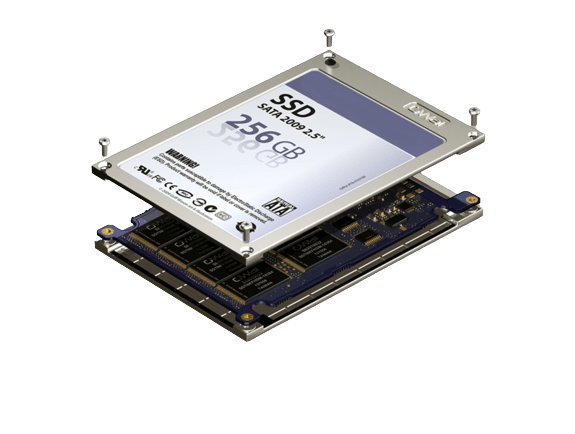
SSD Recovery
Solid state drive (SSD) technology is the newest storage media for laptops, notebooks, netbooks, tablets, and is even used in large scale enterprise storage equipment.
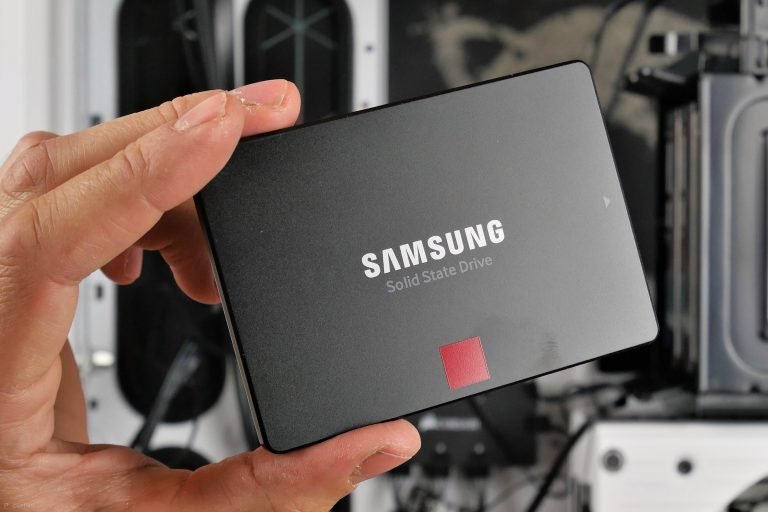
Solid State Drive (SSD) Forensics
Solid State Drives pose a variety of interesting challenges for computer forensics in comparison with traditional rotating magnetic platter hard drives. Most SSD devices are based on flash memory; some have battery backed SRAM or DRAM with a flash backing store.
Microserve has data reconstruction applications and techniques for the following systems:
- Internally, flash memory is not divided into the traditional 512 byte blocks, but instead is in pages of 2KiB, 4KiB, or larger, although it is still presented to the host computer in blocks
- Whilst hard drives can be written in a single pass, flash memory pages must be erased (in whole) before they can be rewritten.
- Rewriting a block at the operating system level does not necessarily rewrite the same page in the flash memory due to the controller remapping data to spread wear or avoid failing pages
- Each page can be erased and rewritten a limited number of times – typically 1000 to 10,000. (Hard drive sectors, in contrast, can be rewritten millions of times or more ).
- Flash data is often encrypted on the drive, and can be “erased“ by telling the controller to forget the old key and generate a new one, as well as marking all blocks as unused
The controller in a flash SSD is significantly more complex in the number of tasks it has to perform in comparison to a magnetic rotating drive, with the following features:
- Wear leveling – that is, spreading the writes to flash out among different sectors. leveling is typically done with a flash translation layer that maps logical sectors (or LBAs) to physical pages. Most FTLs are contained within the SSD device and are not accessible to end users.
- read/modify/relocate+write – if the controller allows rewriting of a partial flash page, it read the entire page, modify the sector that is being written, and write the new flash page in a new/fresh location which has been previously erased. the old pre-modification data’s page is then queued for erase.
Microserve has data reconstruction applications and techniques for the following systems:
- Internally, flash memory is not divided into the traditional 512 byte blocks, but instead is in pages of 2KiB, 4KiB, or larger, although it is still presented to the host computer in blocks
- Whilst hard drives can be written in a single pass, flash memory pages must be erased (in whole) before they can be rewritten.
- Rewriting a block at the operating system level does not necessarily rewrite the same page in the flash memory due to the controller remapping data to spread wear or avoid failing pages
- Each page can be erased and rewritten a limited number of times – typically 1000 to 10,000. (Hard drive sectors, in contrast, can be rewritten millions of times or more ).
- Flash data is often encrypted on the drive, and can be ``erased`` by telling the controller to forget the old key and generate a new one, as well as marking all blocks as unused
The controller in a flash SSD is significantly more complex in the number of tasks it has to perform in comparison to a magnetic rotating drive, with the following features:
- Wear leveling – that is, spreading the writes to flash out among different sectors. leveling is typically done with a flash translation layer that maps logical sectors (or LBAs) to physical pages. Most FTLs are contained within the SSD device and are not accessible to end users.
- read/modify/relocate+write - if the controller allows rewriting of a partial flash page, it read the entire page, modify the sector that is being written, and write the new flash page in a new/fresh location which has been previously erased. the old pre-modification data's page is then queued for erase.
Solid State Drive Brands
- Intel®
- SanDisk®
- Western Digital Solid State Storage
- OCZ® Technology
- Kingston Technology®
- STEC®
- PNY Technologies®
- Crucial®
- Transcend®
- Other*
- Patriot Memory®
- Samsung®
- Micron®
Unlike hard disk drives, Solid State Drives store data in flash memory chips. This eliminates data loss due to mechanical or hardware damage, such as head crashes or motor defects.
Research shows low awareness of the technical complexity of SSD can jeopardize data availability. Data loss occurs with SSD storage devices because they are susceptible to damage to the flash chips and how data is stored
on them. Here are some common failures with SSD drives:
- Electronics component failure
- Controller chip failure
- Flash cell degradation
- List Item
- Data corruption due to power surges or failures
- Damage to printed circuit boards
- Damage to connectors
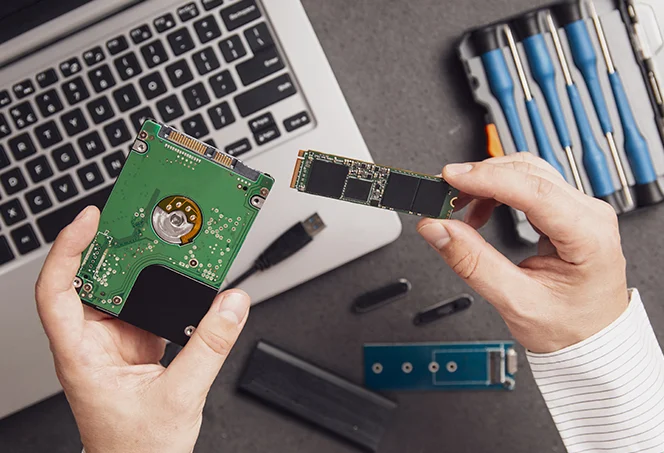
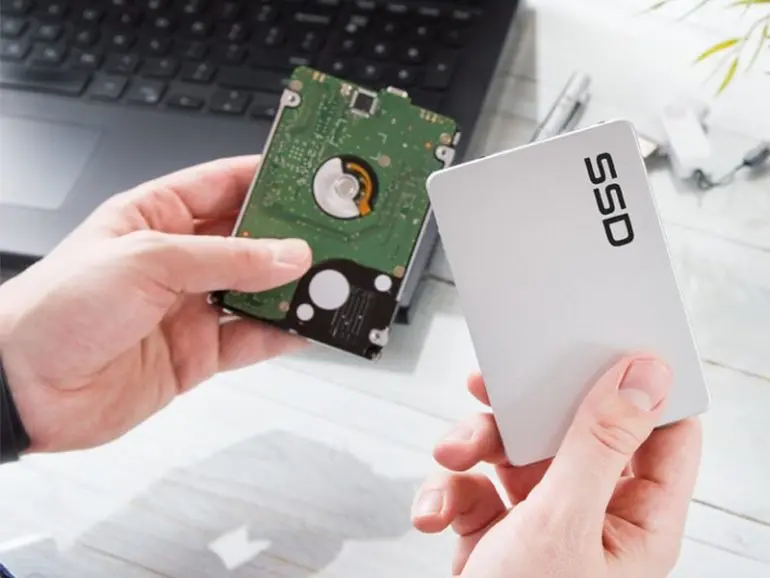
Additionally, SSD storage devices are susceptible to traditional data loss events such as human error, computer viruses, natural disasters, and software/programme corruption.
In addition to recovering data from the common sources of SSD failures, the Microserve Data Recovery team can overcome technical challenges that are unique to SSD and flash technology, such as decoding complex SSD data structures for individual brands, specialised controller chips, and many other SSD specific issues.
Microserve has developed data reconstruction programs that will identify, separate and reassemble your SSD memory so that your files or data will be able to be extracted. SSD Recovery
Our labs offer SSD Recovery for all makes and models by partnering with leading manufacturers and investing heavily into R&D.
Solid state drives consist of a series of flash memory chips assembled to act as a single storage device. Combined with the ever-changing development of SSD controllers and the complex nature of compression, wear leveling & encryption algorithms used, makes SSD recovery more specialized than nearly any other data recovery service.
Our research and development teams continue to drive innovation for dependable results with all brands of solid state drives and NAND flash recovery.
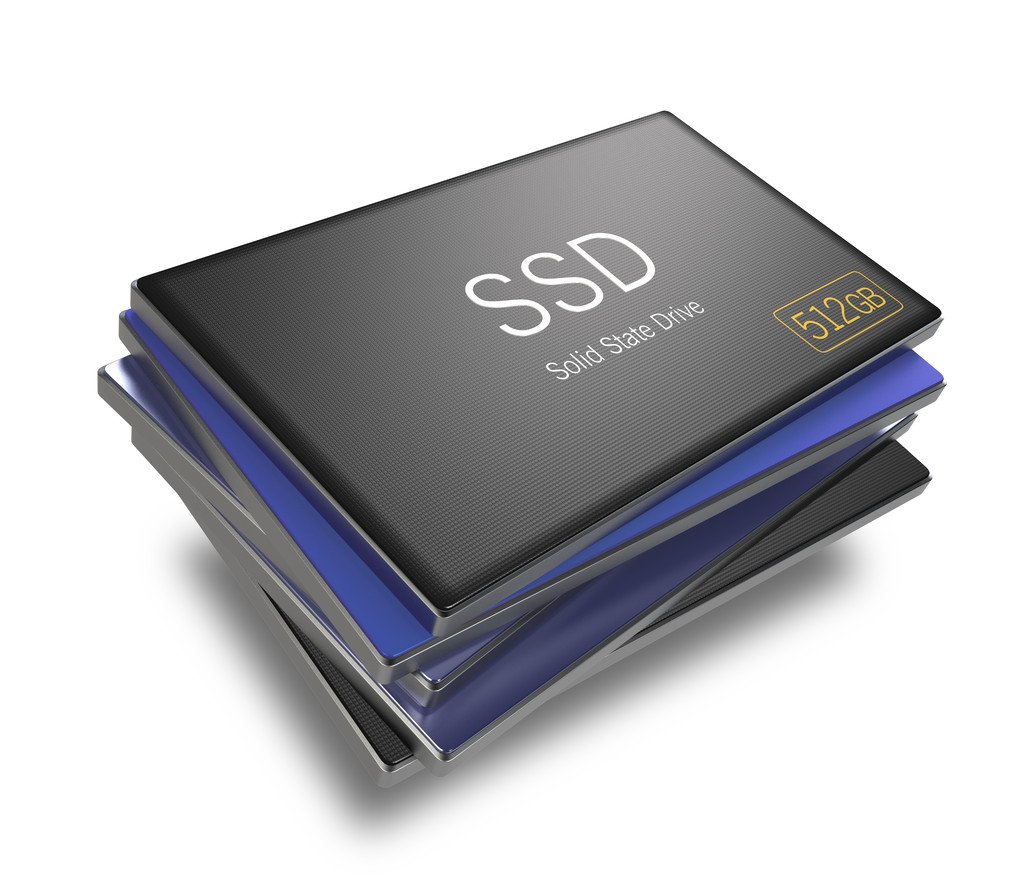
SSD Recovery is Possible
Missing files from your SSD? SSD recovery is possible. Fill out a form to Receive a EVALUATION for SSD recovery. Tablets, iPads, MacBooks, USB sticks, and SSD utilize NAND chips. Our SSD recovery engineers have decades of experience.
SSD recovery services extend beyond SSDs and encompass other NAND-based technologies. Recover SSD drive files from SSD drives that have been affected by various issues: virus attacks, malicious activity, physical damage, and logical failures. Physical damage is brought on by bad blocks on the memory storage. Professional SSD recovery is essential for successfully retrieving data from an SSD drive with bad blocks. Factors, such as wear & tear, manufacturing defects, physical or logical issues, lead to bad blocks on an SSD. SSD Recovery
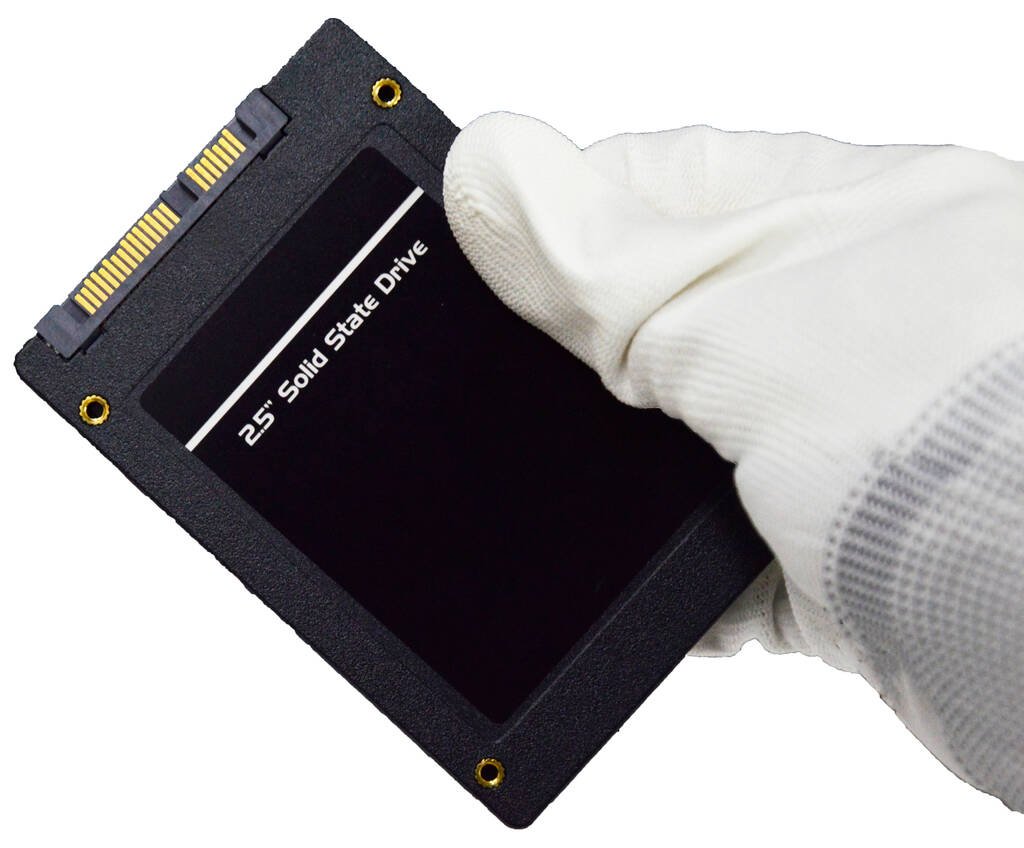
SSD Recovery Services
When it comes to SSD recovery, we understand the urgency of retrieving your data as quickly as possible. Our streamlined and efficient processes aim to deliver results within a matter of days, not weeks. SSDs offer lightning-fast file transfer speeds, and your SSD recovery service should match that speed. Suffering from SSD file damage? Hire advanced SSD data recovery service professionals. Do you have a broken SSD? Moreover, did you lose access to your files?

